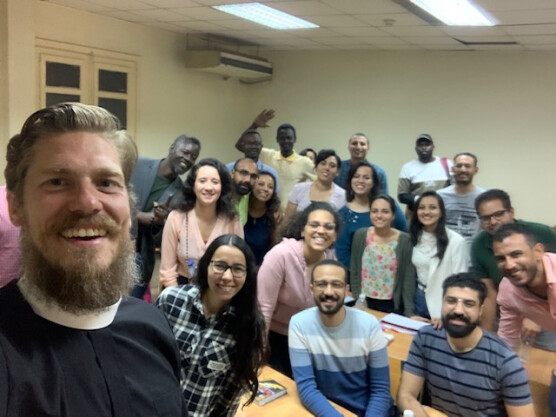From Egypt with Love,3

As soon as we got to Egypt, I started to teach in the Alexandria School of Theology. My first course is Systematic Theology, and the topic is the doctrines of Scripture and of God. The latter has me teaching about God’s essence and attributes - his simplicity, power, omniscience, and so forth. Interestingly, a few of the professors were invited to a seminar on the Islamic doctrine of God by a local theologian, and the overlap between our two views is notable. We both start with the fact that God’s essence is his existence. That’s to say that God is Being itself, that God can’t not exist, which is to say that he exists necessarily. This is tied closely to the fact that God is creator since contingent beings can only have received their existence from a necessary Being. Christian theologians of the last century or two have sometimes denied the doctrine of creation and the classic doctrine of God in favour of less enduring conceptions: God is one with the universe; God evolves with the universe; God develops himself. But there’s no doubt a change like this would make it harder for Muslims to relate to us. When you think about it, it’s remarkable just how widespread and long-standing our agreement is regarding the doctrine of God. Of course, major misunderstandings and disagreements continue to exist with respect to the doctrine of the Trinity, but perhaps I’ll touch on this later. For now i should say that it is interesting to experience a culture that takes for granted the same definition regarding what God is: that he is one, necessary, simple, immaterial, eternal, all-powerful, all-knowing, omnipresent, and so on. Without emphasizing this commonality, it will be hard for the distinctives of the gospel to be heard.

